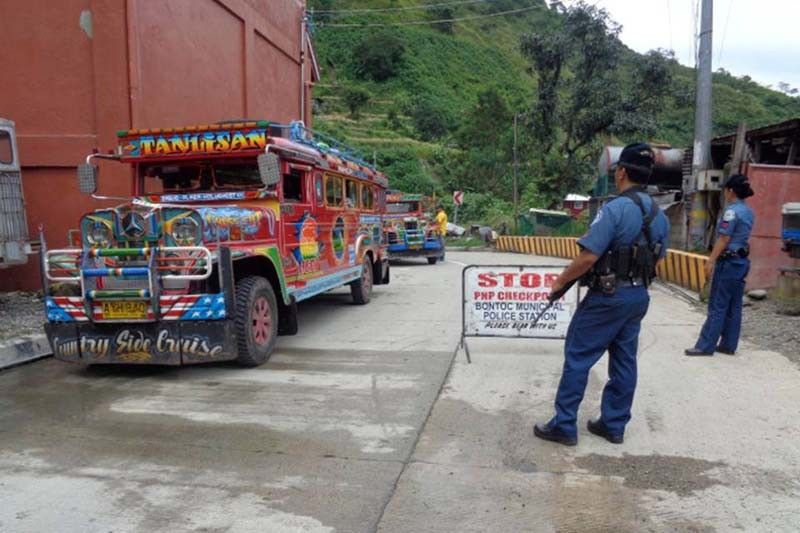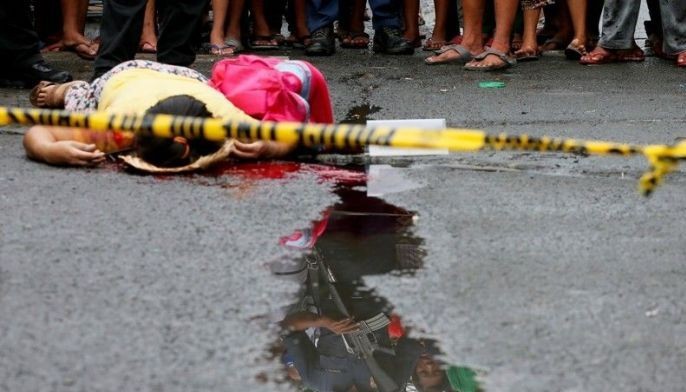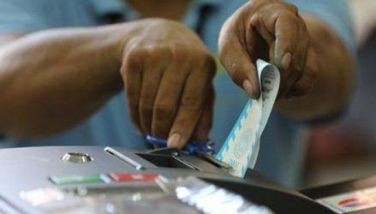SC: Intrusive, warrantless searches of vehicles over anonymous tips are invalid

MANILA, Philippines — An intrusive, warrantless search of a moving vehicle based merely on an anonymous tip is invalid—and allowing it would create a dangerous precedent for harassment, the Supreme Court held.
The SC en banc, voting 11-3, acquitted drug trading convict Jerry Sapla, who was arrested in 2014 with four bricks of dried marijuana leaves in his bag. A Tabuk City Regional Trial Court convicted him of violation of Section 5 of the Comprehensive Dangerous Drugs Act, and the Court of Appeals upheld the ruling.
This prompted Sapla to appeal his case to the SC, through a petition for certiorari.
In resolving Sapla’s petition, the SC weighed on this question: “Can the police conduct a warrantless intrusive search of a vehicle on the sole basis of an unverified tip relayed by an anonymous informant?”
The high court said no.
“The instant appeal is impressed with merit. The Court finds for accused-appellant Sapla and immediately orders his release from incarceration,” the SC said.
Associate Justice Alfredo Benjamin Caguioa wrote the main decision, with 10 concurrences and three dissenting votes from Associate Justices Rosmari Carandang, Amy Lazaro-Javier and Mario Lopez.
The case
Officers of the regional Public Safety Battalion, in January 2014, acted on a tip they received from a concerned citizen of a certain male individual who would transport marijuana from Kalinga into the province of Isabela.
A text from another anonymous citizen gave a more detailed description of the person and the plate number of the jeepney he was allegedly in, prompting police to set up a checkpoint.
When the jeepney arrived at the checkpoint, the police officers flagged it down opened a sack in front of Sapla, who police said matched the description given by the tipster and said he owned the sack. Police found four bricks of suspected dried marijuana leaves.
In January 2017, the RTC convicted Sapla for violating Section 5 of Republic Act 9165, and ordered him to suffer the penalty of reclusion perpetua and pay a P5-million fine.
The CA also affirmed the RTC’s ruling, but meted him a life imprisonment sentence and lowered the fine to P1 million.
The SC ruling
The SC said that the RTC and CA, in finding and later upholding Sapla’s guilt, held the operation as a valid warrantless search of a moving vehicle. But the tribunal deemed otherwise. “The situation presented in the instant case cannot be considered as a search of a moving vehicle,” the ruling read.
The high court said that a warrantless search and seizure of moving vehicles is limited to visual inspection only; an extensive search of a vehicle is permissible only if the “officers made it upon probable cause,” or upon personal knowledge of the seizing officer that the vehicle contains an item that is subject to seizure or destruction.
A text message from an anonymous person is not probable cause for a conduct of an intrusive, warrantless search, the SC said.
“Simply stated, a more extensive and intrusive search that goes beyond a mere visual search of the vehicle necessitates probable cause on the part of the apprehending officers,” the ruling further read.
“Does the mere reception of a text message from an anonymous person suffice to create probable cause that enables the authorities to conduct an extensive and intrusive search without a search warrant? The answer is a resounding no,” it added.
The SC stressed that a confidential or tipped information is still hearsay and cannot constitute probable cause.
“The police officer should not adopt the suspicion initiated by another person,” the SC said, as it stressed the authorities “’must observe the facts leading to the suspicion of an illicit act’ and not merely rely on the information passed on to him or her.”
It also took note of the 1992 case of People vs Bagista where Associate Justice Teodoro Padilla’s Dissenting Opinion where he said “the information alone received by the NARCOM (Narcotics Command) agents, without other suspicious circumstances surrounding the accused did not give rise to probable cause justifying the warrantless search made on the bag of the accused.”
Referring to Padilla’s Dissenting Opinion, the SC said: “This holding... must now fully find the light of the day as it is more in line with the basic constitutional precept that the Bill of Rights occupies a position of primacy in the fundamental law. “
“The Court now holds that the cases adhering to the doctrine that exclusive reliance on an unverified, anonymous tip cannot engender probable cause that permits a warrantless search of a moving vehicle that goes beyond a visual search—which include both long-standing and the most recent jurisprudence—should be the prevailing and controlling line of jurisprudence,” it added.
A dangerous precedent
The SC went on to say that adopting a contrary rule would set a dangerous precedent where unverified information passed along by an informant, “the authorities are given the unbridled license to undertake extensive and highly intrusive searches even in the absence of any overt circumstance that engenders a reasonable belief that an illegal activity is afoot.”
If the SC would allow “intrusive warrantless arrests,” unscrupulous persons can send false information to the police and harass and intimidate others.
This would also allow unscrupulous authorities to infiltrate a person’s vehicle and residence and violate his or her right to privacy, by claiming the receipt of a raw intelligence when there is none.
“Simply stated, the citizen’s sanctified and heavily-protected right against unreasonable search and seizure will be at the mercy of phony tips,” it added.
The 'war on drugs'
The SC, in the same ruling, also took time to state that while it recognizes the need for an aggressive stance against illegal drugs, the Constitution holds that maintenance of peace and order and promotion of general welfare are essential in democracy.
The tribunal stressed that a battle against illegal drugs where the Constitution is disregarded is “self-defeating and self-destructive enterprise.”
“A battle waged against illegal drugs that tramples on the rights of the people is not a war on drugs; it is a war against the people,” it said.
“The Bill of Rights should never be sacrificed on the altar of convenience. Otherwise, the malevolent mantle of the rule of men dislodges the rule of law,” it added.
The 'drug war' petitions
A 2017 petition against the Duterte administration’s bloody 'drug war' through the police’s Oplan Tokhang remains pending before the high court to this day.
During the oral arguments held in 2017, justices zeroed in on the government circulars allowing "Oplan Double Barrel" and "Masa Masid" and whether the two orders violated any laws.
RELATED: Justices ask: Did Oplan Tokhang, Masa Masid violate any law?
Petitioner Free Legal Assistance Group’s Chel Diokno assailed the DILG's Memorandum Circular 2017-112 or the “Masa Masid” project for being unconstitutional by allowing anonymous reporting of drug suspects.
National Union of Peoples’ Lawyers president Edre Olalia said that the SC’s latest ruling may be “extended to parallel situations,” except for nuances in the legal issue as worded by the ruling.
“But in principle, drop boxes and drug lists which are unverified anonymous tips and if they are the sole and only basis for the intrusive (not the visual only type) search of vehicles (not necessarily houses or offices it seems) are invalid and therefore illegal and anything allegedly taken are "fruits of the poisonous tree (or inadmissible in evidence),” Olalia explained.
“Oplan Tokhang is patently an invalid search as the constitutional and legal requisites are not present nor complied with i.e. valid warrantless searches and probable cause, and on case of search warrants, searching questions under oath to be determined by a judge and particularly describing with specificity the things to be searched or seized,” he added.
- Latest
- Trending
































